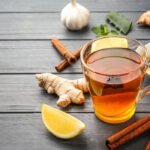High blood pressure, or hypertension, has quietly become one of the most pressing health challenges of our time. Often described as the “silent killer,” it affects millions of people worldwide, including a significant share of India’s population. What makes hypertension particularly insidious is that it rarely presents obvious symptoms in its early stages, yet its consequences are grave—heart disease, stroke, kidney damage, and even vision loss.
Medical intervention remains a cornerstone of treatment, and for many patients, prescribed medications are non-negotiable. However, alongside conventional medicine, there has been a growing recognition of the role that lifestyle changes, holistic practices, and natural remedies can play in managing hypertension. In India, this conversation naturally extends to Ayurveda and traditional herbal wisdom, where plants and natural therapies have been used for centuries to support cardiovascular health.
In this article, we will explore how a holistic approach—combining diet, exercise, stress management, and Indian herbal remedies—can be used to manage hypertension more effectively.
Understanding Hypertension
Hypertension occurs when the force of blood against the walls of arteries remains consistently high. Over time, this added strain damages the arteries, increases the risk of heart attack, contributes to the formation of aneurysms, and accelerates kidney disease. In India, rising urbanisation, increasingly sedentary lifestyles, processed food consumption, and high stress levels have made hypertension a widespread condition.
Doctors often classify hypertension into two broad categories. Primary hypertension develops gradually without a single identifiable cause, often linked to age, lifestyle, and family history. Secondary hypertension arises from an underlying condition such as thyroid disorders, kidney disease, or certain medications. Regardless of the cause, management requires a long-term commitment to healthier living.
The Role of Diet in Blood Pressure Control
One of the most powerful ways to influence blood pressure is through diet. The modern Indian diet, with its dependence on refined grains, fried snacks, high salt, and sugary foods, contributes significantly to hypertension. Adopting a balanced diet rich in whole foods, fresh vegetables, fruits, legumes, and lean proteins can lower blood pressure naturally.
Interestingly, Indian spices long used for flavour also carry therapeutic value.
Turmeric
Turmeric contains curcumin, a compound with anti-inflammatory and antioxidant properties. Regular consumption has been associated with improved blood vessel function, which can aid in reducing blood pressure. Beyond its use in curries, turmeric can be consumed with warm milk or added to teas.
Cinnamon
Cinnamon has shown potential in improving insulin sensitivity and lowering blood pressure. It can be sprinkled on porridge, yoghurt, or even incorporated into herbal teas.
Garlic
Garlic is another powerful ally in heart health. Studies suggest that allicin, the active compound in garlic, relaxes blood vessels and improves blood flow, thereby reducing blood pressure levels. Raw garlic, when consumed judiciously, is particularly effective.
Fenugreek and Flaxseed
Both fenugreek seeds and flaxseeds are rich in fibre and beneficial compounds that help in cholesterol and blood pressure regulation. They can be incorporated into rotis, smoothies, or as sprouted seeds.
By re-embracing traditional culinary practices while limiting refined carbohydrates and excessive salt, one can make dietary choices that act as medicine in themselves.
The Importance of Physical Activity
Sedentary living is one of the strongest risk factors for hypertension. Incorporating physical activity into daily life is essential, and India’s own traditional practices provide time-tested methods.
Yoga
Yoga goes beyond stretching and flexibility. It balances the body and mind, reduces stress hormones, and improves circulation. Postures such as Trikonasana (triangle pose), Setu Bandhasana (bridge pose), and gentle forward bends are beneficial for cardiovascular health.
Pranayama
Breathing techniques like Anulom Vilom (alternate nostril breathing) and Bhramari (humming bee breath) calm the nervous system, regulate stress, and have been shown to lower blood pressure. Just 10–15 minutes of focused pranayama daily can make a measurable difference.
Regular Walking
While yoga and pranayama are excellent, nothing replaces the benefits of regular brisk walking. A 30-minute walk in the morning or evening enhances metabolism, lowers stress, and strengthens the heart.
Ayurveda and Indian Herbal Remedies
Ayurveda, India’s traditional medical system, has a wealth of knowledge for managing lifestyle-related conditions like hypertension. Many herbs have been used for centuries to support heart health and stress management.
Ashwagandha
Often described as an adaptogen, ashwagandha helps the body adapt to stress, a major contributor to hypertension. By reducing cortisol levels and calming the nervous system, it indirectly supports blood pressure control.
Arjuna
The bark of the Arjuna tree has long been valued for its cardioprotective properties. Traditional Ayurvedic texts describe its role in strengthening the heart muscles, improving circulation, and promoting stable blood pressure. Arjuna is often taken as a powdered supplement or decoction under professional supervision.
Brahmi
Known for its calming effect on the mind, Brahmi helps alleviate stress and anxiety, both of which are closely linked to high blood pressure. A calmer mind supports a healthier cardiovascular system.
Triphala
A combination of three fruits—amla, haritaki, and bibhitaki—Triphala promotes detoxification and supports digestion. By aiding weight management and reducing oxidative stress, it contributes to better blood pressure control.
Tulsi (Holy Basil)
Tulsi is revered not only for its spiritual significance but also for its medicinal value. Its antioxidant and anti-inflammatory compounds help maintain healthy cholesterol levels and improve circulation.
It is essential to consult with an Ayurvedic practitioner before beginning any herbal regimen, as individual constitution, existing conditions, and medication use must all be considered.
Lifestyle Modifications for Hypertension
Diet and herbs are crucial, but lifestyle choices complete the holistic picture.
Quit Smoking
Smoking damages blood vessels, raises blood pressure, and accelerates heart disease. Quitting smoking is perhaps the most important step for cardiovascular health.
Limit Alcohol
Moderation is key. While occasional moderate drinking may not be harmful for some, excessive consumption significantly elevates blood pressure.
Reduce Stress
Chronic stress is a silent trigger for hypertension. Adopting practices such as meditation, mindfulness, journaling, or even engaging hobbies can help manage stress effectively.
Prioritise Sleep
Inadequate sleep disrupts hormonal balance and increases the risk of hypertension. Adults should aim for 7–8 hours of quality sleep each night.
The Indian Context
Hypertension in India is particularly challenging because of its vast urban-rural divide. In urban areas, stress, pollution, and sedentary habits dominate, while in rural regions, diets high in salt and a lack of awareness contribute to the burden. Studies suggest that nearly one in three adults in India has hypertension, yet many remain undiagnosed.
This underscores the importance of raising awareness about preventive and natural approaches that are accessible and affordable. Simple practices like home-cooked meals, regular yoga, and the use of locally available herbs can have a transformative effect.
Myths About Natural Remedies
It is important to dispel a few myths. Natural remedies do not mean “risk-free.” Herbs can interact with prescribed medications, and self-medication may cause harm. Likewise, lifestyle changes, while powerful, may not completely eliminate the need for medicine. Instead, they complement modern medical care, reducing reliance on high doses and improving quality of life.
Towards a Holistic Future
Managing hypertension naturally is about more than lowering numbers on a blood pressure monitor. It is about creating a life that fosters balance—between activity and rest, indulgence and moderation, tradition and modernity. Indian herbal remedies, when integrated thoughtfully, offer a bridge between the wisdom of the past and the needs of the present.
For someone living with hypertension, adopting a holistic approach involves rethinking daily routines. The spices in the kitchen, the practice of yoga at dawn, the calming effect of tulsi tea, and the commitment to restful sleep all come together as medicine. Each of these steps may appear small, but collectively they build resilience against one of the most significant health challenges of our era.
Hypertension may be a silent condition, but the solutions do not have to be hidden. They lie in everyday choices, cultural traditions, and natural wisdom that India has preserved for centuries. By uniting modern medicine with holistic living, we can create an approach that not only manages blood pressure but enhances overall well-being.
Conclusion
Hypertension is neither inevitable nor unmanageable. While it requires medical oversight, it also responds remarkably well to lifestyle modifications rooted in natural living. Indian herbal remedies, alongside balanced diets, physical activity, and mindful living, can make a tangible difference. The true strength of this holistic approach is not in replacing one system with another, but in blending the best of both worlds—modern science with ancient wisdom.
For individuals struggling with high blood pressure, the message is clear: take your prescribed medicines, but also take charge of your life. Eat mindfully, move regularly, breathe deeply, rest fully, and consider the gentle support of herbs like ashwagandha, arjuna, and tulsi. This is not just about reducing numbers on a report—it is about reclaiming health, balance, and vitality for years to come.


























